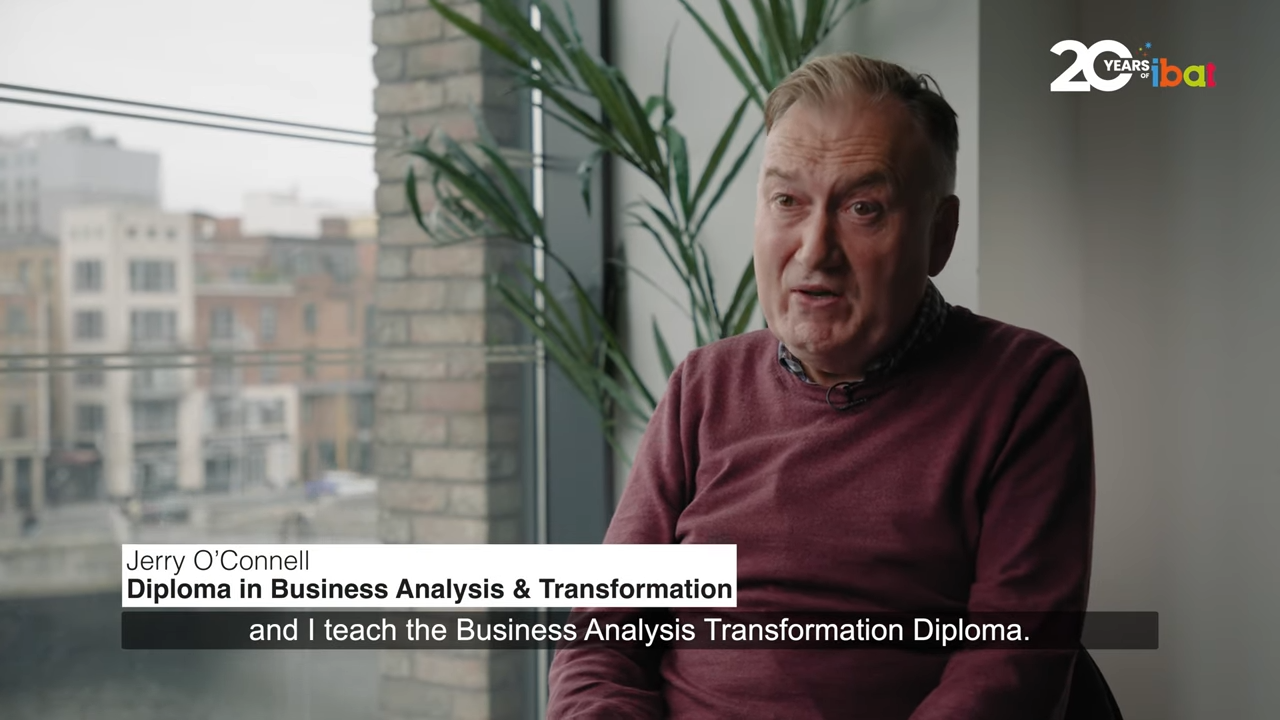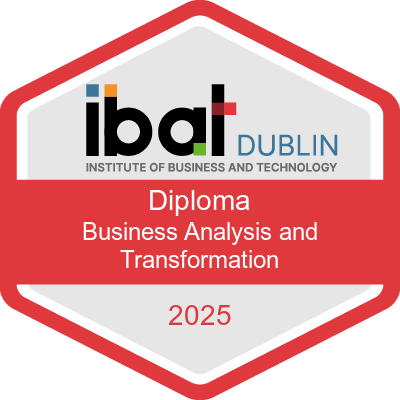- Why Business Analysis & Transformation?
- Course Overview
- Career Opportunities
- Entry Requirements
Why Business Analysis & Transformation?
The business world is constantly changing with new business structures and processes seemingly popping up every day. Due to shifts in global market trends and varied customer expectations, professionals need guidance in the most effective ways to assist organisations in analysing, identifying, and planning for transformation. The business analysis and transformation space has evolved, and businesses need forward thinkers to help them adapt. Business analysis impacts the entire organisation, including strategy development, the creation of enterprise architecture, and defining policy for initiating projects, fostering a culture of continuous improvement.
This business analyst course will focus on the role and responsibilities of a business analyst, including utilising efficient techniques, handling operations, and creating strategic projects. You will be introduced to numerous tricks of the trade with an emphasis on digital tools, leading you to personal and professional development.
Morgan and Mc Kinley places business analysts as one of the most in-demand jobs in Ireland in 2023.
According to the US Bureau of Labor Statistics, the demand for business analysts is expected to see a 14% increase by 2024, which is the highest average percentage among growing professions.
Course Overview
This programme has recently been revised and enhanced to take account of new developments in the field. It takes due account of the BABOK® Guide (the Business Analysis Body Of Knowledge), in particular there is new coverage of the Business Analysis Core Concept Model (BACCM), an analysis tool to design and build transformation solutions through multiple iterations with all stakeholders.
The Diploma begins at a higher level, considering why there is a need for Business Analysis and Transformation projects in the modern business world. It addresses the characteristics of a business analysis and transformation leader, giving students a chance to self-assess their own personas. Students get hands-on with business modelling software, as well as opportunities to assess why and where business transformation projects can be challenging, including stakeholder involvement and impact assessment. The specific opportunities and challenges of technology-driven business transformation are addressed, allowing students to explore the innovative transformations possible in this regard.
Assessment
To be awarded a business analyst certification, students will be asked to produce an individual report on a given business analysis and transformation case scenario. For example, this could be a CRM system to better deliver customer service. The assessment requires the student to detail and document the steps in their proposed process, using appropriate tools and techniques.
What is a Professional Diploma?
An IBAT Professional Diploma is a focused, short- duration practical course that consolidates, upskills and/or reskills learners in a professional area. It is a stand-alone qualification that does not lead to an award on the National Framework of Qualifications (NFQ).
Career Opportunities
Potential opportunities for those who complete the programme may include:
- Business transformational program advisor
- Business analyst
- Commercial business analyst
Entry Requirements
While no prior academic qualification or professional experience is required to participate in this programme, business analysts benefit from having a solid business foundation or broad IT learning. To succeed in an analytical role, and facilitate business and organisational change, you should have a broad range of business, technical, and interpersonal skills.
Why Study at IBAT Dublin?
We are Ireland’s leading enterprise-focused third level institution with a special focus on how we guide, support, and mentor our students throughout their college experience and into their working lives.
We know that employers need graduates that can hit the ground running, so we’ve tailored our courses to prepare you to do just that. And if you need an extra hand, our Academic team equipped with years of lecturing and industry experience are ready to support you both in your professional and personal development.
Diverse Programmes
Take your pick of our wide range of courses, each designed with your future in mind.
Expert Tutors
Learn from industry professionals at the very top of their game.
Flexible Learning
Life happens. We get it. Study and achieve your goals on your schedule.
Central Location
Study at one of our two campuses placed in the heart of central Dublin.
Small Class Sizes
Get one-to-one, personalised support from our tutors.

Study options
You can attend lectures Online or On Campus, offering maximum flexibility with your time and how you learn.









